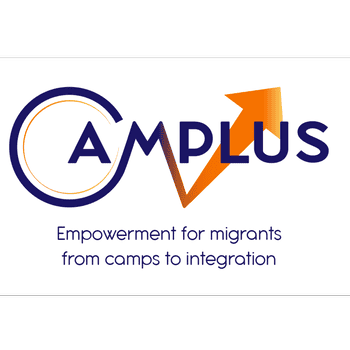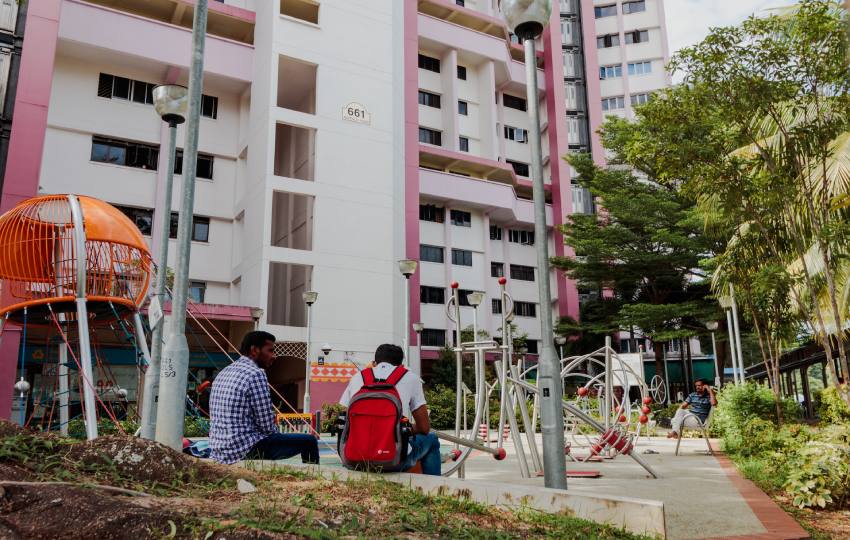Europe has been on the receiving end of migrants and refugees for decades, but this phenomenon has only gotten worse in recent years. The peak of the migration flow was recorded in 2015, but since it has significantly decreased. But the problems for these migrants and refugees do not stop upon reaching the european soil.
For many of those, that’s when many of their problems begin as they are getting stuck in migrant camps for months or even years before they are able to legally move elsewhere. And that’s the main focus of today’s blog. With this article, we want to shed a little bit of light on the importance of the integration process. Not anywhere or at any time but specifically when the migrants are still in camps.
Our Camplus consortium has identified that the integration process of migrants in European society can be highly effective when it begins in camps rather than after resettlement in their host country. For this to be successful, it is important to identify the challenges migrants and refugees face in these camps and provide them with tailored support. This can smooth out the whole integration process and increase the success rate of their integration journey.
Migrant integration is a multifaceted process that goes beyond mere resettlement. It includes fostering social inclusion, promoting cultural diversity, and building strong social cohesion within communities. However, the initial stages of integration, particularly for those residing in camps, can present unique hurdles that must be overcome.
Migrants in camps face multiple challenges. From limited access to education and employment to language barriers and cultural differences. These problems, if not dealt with early, can hinder the integration process. That’s why we firmly believe that early integration in camps is necessary.
In this article, we will mention the challenges migrants face in camps and why their integration must be further supported at an earlier stage. Finally, we will introduce the Camplus project —an initiative that exemplifies the importance of comprehensive integration preparation in camps.
The Challenges Migrants Face in Camps and Early Preparation
Migrant and refugee camps are challenging environments for both individuals and families alike, impeding their integration process. Understanding the difficulties they go through is the first step to providing them with effective support and coming up with proper intervention strategies. Let’s view some of the main challenges migrants face in camps:
Limited Access to Education and Employment
The lack of education, skills training, or recognition of their qualifications is a big impediment to the self-sustaining life of individuals as they have a hard time finding employment. As a result, they are unable to support themselves and their families, creating a big barrier to their integration within their host country.
The number one priority for the social inclusion of migrants in host countries is to make sure that they can find meaningful employment to sustain themselves. This will help them integrate both socially and economically. But, to do so, they need to possess the skills and qualities that employers seek. For this reason, vocational training and skills development within the camp setting is crucial.
Language Barriers
Camps become the temporary home of people speaking different languages. Therefore, it is not only that they can’t speak the local language of their host country, but they also have trouble communicating with each other. These language barriers make it difficult for them to access the services they need or interact with people daily. Without adequate knowledge of the local language, social integration becomes harder as they can’t establish connections, seek employment, or participate actively in their communities.
Early integration preparation offers opportunities to tackle existing language barriers and create avenues of communication. Without understanding the local language, participating in educational and employment opportunities or engaging with locals is almost impossible. Language courses and language support programmes in camps can help them develop their language skills. Understanding the local language is paramount to their integration journey as it will boost their confidence and permit them to participate in society’s social, educational, and economic spheres.
Cultural Adjustment
One of the biggest challenges of migrants is to culturally adapt to their new environment. They often come from a diversity of cultural backgrounds that are totally strange to the local dominant culture. This makes it hard for them to adapt to the new norms, values and social practices in their new country and becomes overwhelming to them. However, understanding the local customs, traditions, and social expectations is critical to successfully integrating into this new society and creating meaningful connections with locals.
Introducing migrants to the host country’s customs, traditions, and societal norms can help them understand better the local culture. It is essential to foster a cross-cultural understanding and appreciation, as this will lay the groundwork for more harmonious interactions and social cohesion between migrants and locals. That’s why it’s important to start cultural orientation early in camps so that migrants know what to expect and expect from them.
Social Isolation
Social isolation is, unfortunately, a big issue when migrants stay in camps. Many times they are alone, separated from their families and support networks living in crowded or isolated conditions. As a result, they feel loneliness and alienation, which have a huge toll on their emotions and psychology and make them less motivated to engage more actively in their integration process.
Early integration preparation can foster a sense of empowerment and resilience among migrants. Being proactive in dealing with the challenges they face communicates a message of support and inclusivity and makes them feel like they belong and motivate them to be more active in their integration process.
To address these challenges effectively, various support and intervention strategies are needed for migrant camps. They can take the form of language courses, cultural orientation programs, vocational training, and psychosocial support to help migrants develop their skills, knowledge, and resilience for their successful integration.
Learn More About the Camplus EU Project

The Camplus EU project takes a unique approach to addressing the issue of migrants and displaced persons’ inclusion. Through a comprehensive needs assessment in Europe and other regions, the project recognized the potential effectiveness of preparing migrants for inclusion while still in camps before their legal resettlements in another European country. This innovative approach leverages the resilience and aspirations of these populations to create a better future for themselves.
The project specifically targets migrants and displaced persons who are often stigmatized and overlooked by political leaders. Recognizing their eagerness to contribute and participate in concrete projects for the betterment of their immediate environment, Camplus aims to empower these individuals and change perceptions of the camps.
The belief is that successful integration begins with preparation in the camps. The project aims to overcome barriers and foster resilience by providing leadership and personal development training. It seeks to generate job opportunities, stimulate economic activities, and promote continuous learning among the target group.
Empowerment lies at the core of the Camplus’ approach. By equipping migrants and displaced persons with the necessary skills and education, the project aims to facilitate their integration process and positively impact their lives. Through this comprehensive support, the project empowers individuals to contribute to their communities, fostering a sense of belonging and creating a brighter future for all involved.
To learn more about the transformative work of Camplus, stay tuned to the project’s page to discover our upcoming results.
Conclusion
Starting integration preparation of migrants from camps is critical to their successful integration. Recognizing their challenges is the first step to providing them with tailored support to overcome these barriers and thrive in their new communities.
The benefits of early integration preparation are far-reaching. By addressing language barriers, cultural adjustment, and limited access to education and employment opportunities, we equip migrants with the tools and skills they need for a smoother integration process. Moreover, by providing psychosocial support and fostering a sense of empowerment, we nurture their resilience and motivation to actively participate in their new societies.


